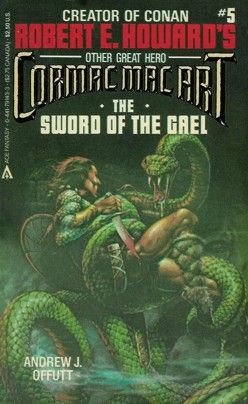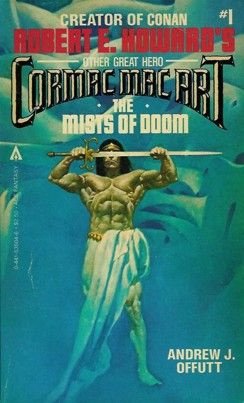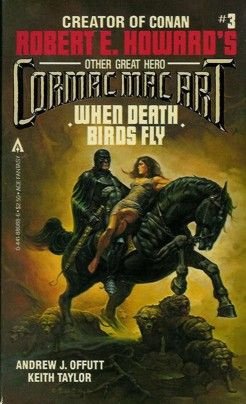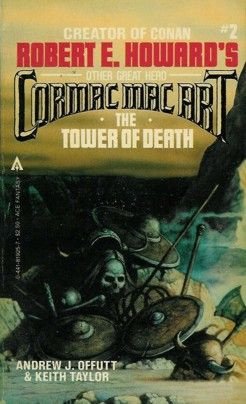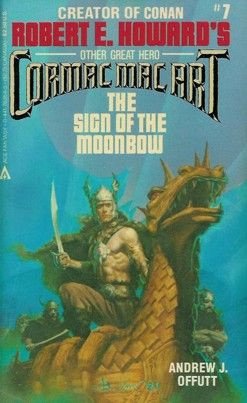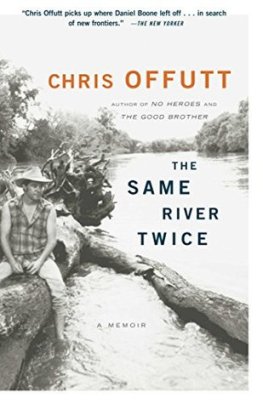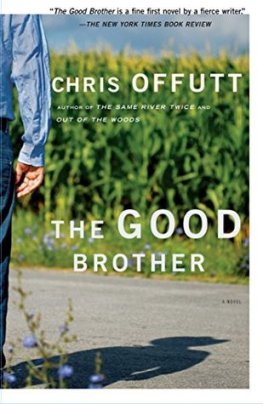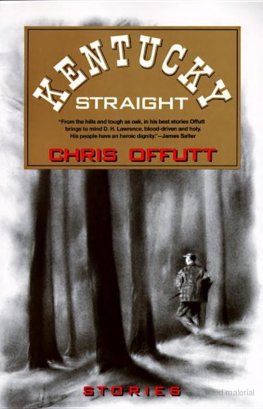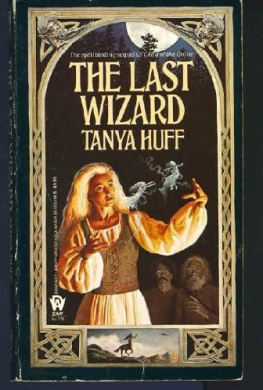Andrew Offutt - The Undying Wizard
Here you can read online Andrew Offutt - The Undying Wizard full text of the book (entire story) in english for free. Download pdf and epub, get meaning, cover and reviews about this ebook. genre: Romance novel. Description of the work, (preface) as well as reviews are available. Best literature library LitArk.com created for fans of good reading and offers a wide selection of genres:
Romance novel
Science fiction
Adventure
Detective
Science
History
Home and family
Prose
Art
Politics
Computer
Non-fiction
Religion
Business
Children
Humor
Choose a favorite category and find really read worthwhile books. Enjoy immersion in the world of imagination, feel the emotions of the characters or learn something new for yourself, make an fascinating discovery.

- Book:The Undying Wizard
- Author:
- Genre:
- Rating:5 / 5
- Favourites:Add to favourites
- Your mark:
- 100
- 1
- 2
- 3
- 4
- 5
The Undying Wizard: summary, description and annotation
We offer to read an annotation, description, summary or preface (depends on what the author of the book "The Undying Wizard" wrote himself). If you haven't found the necessary information about the book — write in the comments, we will try to find it.
The Undying Wizard — read online for free the complete book (whole text) full work
Below is the text of the book, divided by pages. System saving the place of the last page read, allows you to conveniently read the book "The Undying Wizard" online for free, without having to search again every time where you left off. Put a bookmark, and you can go to the page where you finished reading at any time.
Font size:
Interval:
Bookmark:
Andrew J. Offutt
The Undying Wizard
Prologue
The enormous reptile lay in a cavern passage, eerily lit by some means surely preternatural; sorcerous, perhaps. Walls and ceiling glowed. The strange illumination was dim, pearly, hardly akin to that of torch or lamp, much less the sun-which could not pierce the caverns ceil of earth and rock beneath the man-made pile of masonry that capped the thick natural layer. The pale light emanated from the very walls of the world-old tunnel itself.
In this weird luminous emanation from a source not visible the great reptile lay, a green monster twisted as a vine on rocky soil.
Several times the length of a man the creature was, and nigh as thick. It lay motionless in a great lake of red-brown cruor. The blood had thickened and crusted over in coagulation, so that it shone as if glowing, reflecting the wall-light. The serpent was still. Its eyes, the colour of new flax and large as a mans eyes, were filmed over.
Yet it gave off no stench, nor was it bloated. There was no sign of putrefaction. Nevertheless, the monster was dead. Its great twisted tree-trunk of a body bore the many wounds that had ended its life. It had been stabbed and hacked, sliced and chopped. No juices remained in that prodigious corpse; the number of wounds and its own volcanically violent death throes had seen to that.
It was fearsome, even in death. No ordinary man had brought red death upon this haunter of subterrene passageways.
In a somber cavern beneath the earth beneath a towering castle of extraordinary antiquity, the reptile that appeared to be the father of all snakes lay dead.
And it moved.
Only the hint of a shudder was that movement-but no, it was a shimmer, giving but the weird illusion of motion. A Something stirred within the corpse. Some thing was struggling to gain freedom from its prison of death.
In the whelming silence of a tomb, the air stirred about the great snout. Slowly, above the moribund shell of the reptile, a haze formed. It spread, lengthened, billowed only slightly, and rose. Tenuous, wavering creepers of mist shuddered on the stale air of the cavern. Luminous walls were clearly visible through the gossamer floating haze. It was blue-grey, that ever-shifting amorphous cloudlet; the colour of human death.
Yet about it there was nothing human.
For just a moment among the fleeting motes of time, the necrotic haze seemed to coalesce, as if attempting to form a shape: rounded at the top, pierced below by two holes, narrow and latticed below-a deaths head.
But that was gone in an instant, nor were there living eyes present to have seen.
The mist floated up, free of the serpentine corpse that had spawned it. It moved, and surely there was purpose in the flowing movement of that faint cloud of haze along the subterranean corridor.
The passage bent and twisted again and again, as though formed by a restless reptile-or by long-dead men who had sought to confuse and slow possible pursuit. For though the mist-thing moved away from it, the tunnel gave off a concealed passage in the centuries-old castle above.
The mist-thing drifted along above a dusty, ever-descending floor of packed earth. Around convoluted turnings and twistings writhed the wraithy haze, and it touched nothing but air, this form of life from death that trailed in eerie silence through the soundless channel beneath the earth.
Then it paused, writhing in air. It hovered above another corpse.
The body was that of a man. Old he had been, aged enough to have died of natural causes. But there was visible evidence to the contrary. He who had been tall and unusually thin wore a cowled robe, dark as night. Cloth covered his reed-thin body from head to instep. He lay belly down, and in the center of the robes back a darker stain spread. Dried trails of it led over the fabric to the corridors floor of packed, dust-piled earth. The splotch and its coagulated runnels were a reddish brown, like old rust. The robed man had been stabbed from behind and had got his death thereby.
Grey and white, forming silver, were his beard and the hair that straggled limp as corn tassels from his head over his cheek. Grey too were his eyes, nearly white in the paleness. Though open, they saw nothing. Bony hands with fingers like claws had not even torn at the tunnel floor; he had been dead even as he fell. Open too was his mouth in a rictus that had been a gasp or cry.
The hovering mist lowered. Wraithy tendrils of transparent blue-grey touched the corpse, as though the amorphous haze-thing was putting forth exploratory pseudopods.
One of them entered the open mouth of the dead man.
Swiftly then, like smoke somehow filtering into a bottle, the haze entered the corpse.
Then all was quiet and still, and none was there to measure the passage of time. Minutes, or hours, or days, or weeks or months they were as nothing to the dead-and to the mist-thing.
The seagreen serpent lay dead, and it began to rot. Well away along the twisting corridor beneath the earth, the robed man lay dead. And the mist had vanished, as silently and hazily as it had appeared, from one corpse and into another.
The body of the robed man did not swell, or rot.
Then, in that silence and motionlessness of death, there was movement.
It was fingers that twitched; the fingers of the right hand of the dead man.
They curled, clawing inward and leaving trails in the dust of the ancient cavern. Hardly more than bone, these fingers straightened again. And curled once more.
A ripple flowed through night-dark fabric as the dead mans left leg moved, only a twitch like the rigour after death-but he had been dead far too long for that.
Both arms bent. Both bone-lean hands moved back toward the body. They planted themselves, palms down, at the shoulders. The head moved. Lank silver hair stirred. The hands pressed down. Buskin-shod feet scraped.
The corpse pushed itself up from the dusty floor.
On its feet, the dead man who was not dead wavered, tottered on long-still legs. A hand swung out to slap the earthen wall, as a brace for a body that had long lain prone. A long moaning sound issued from the thin slash of a mouth. All through the tall form, a great shudder ran. Then, as though just remembering, the mouth closed.
The head turned on its thin neck with another stirring of shoulder-length hair like lifeless silver thread. One hand, the right, rose before the face. It turned there, like a specimen the dead eyes studied, while the robes dolmen sleeve slid down. Revealed was a wrist that was only skin drawn over bone like hide tedded for its tanning.
The skin was not tan, but nearly white, like new linen.
The hand slapped the chest, moved over the face. It traced out the high forehead, the deep crag-surmounted sockets of the pale, pale eyes, that thin nose with its porcelain-like nostrils, the gaunt cheeks, the mouth that was little more than a horizontal gash between mustache and ashy beard.
The resurrected corpse, alone beneath the earth spoke.
Thin, O Great Serpent, this body-merely skin over bone like the fine parchment of Vanara stretched over stone to dry! The voice that issued from the corpse was soft, almost a whisper. A lean body, far from young. A priest, a seer, a mage-a Druid, it is called. From a land called Norge, where the ice remains long and snow falls and lies ever atop the craggy peaks, and wind howls cold to cut like a chariot-wheels scythe.
Up leaped robe-swathed arms, to raise clenched fists on high.
ALIVE! Alive and in the form of a man once more, with hands, aye and feet to walk the earth again! Cutha Atheldane. That was the name of the life-force that quickened this body before mine animated it anew.
Font size:
Interval:
Bookmark:
Similar books «The Undying Wizard»
Look at similar books to The Undying Wizard. We have selected literature similar in name and meaning in the hope of providing readers with more options to find new, interesting, not yet read works.
Discussion, reviews of the book The Undying Wizard and just readers' own opinions. Leave your comments, write what you think about the work, its meaning or the main characters. Specify what exactly you liked and what you didn't like, and why you think so.

